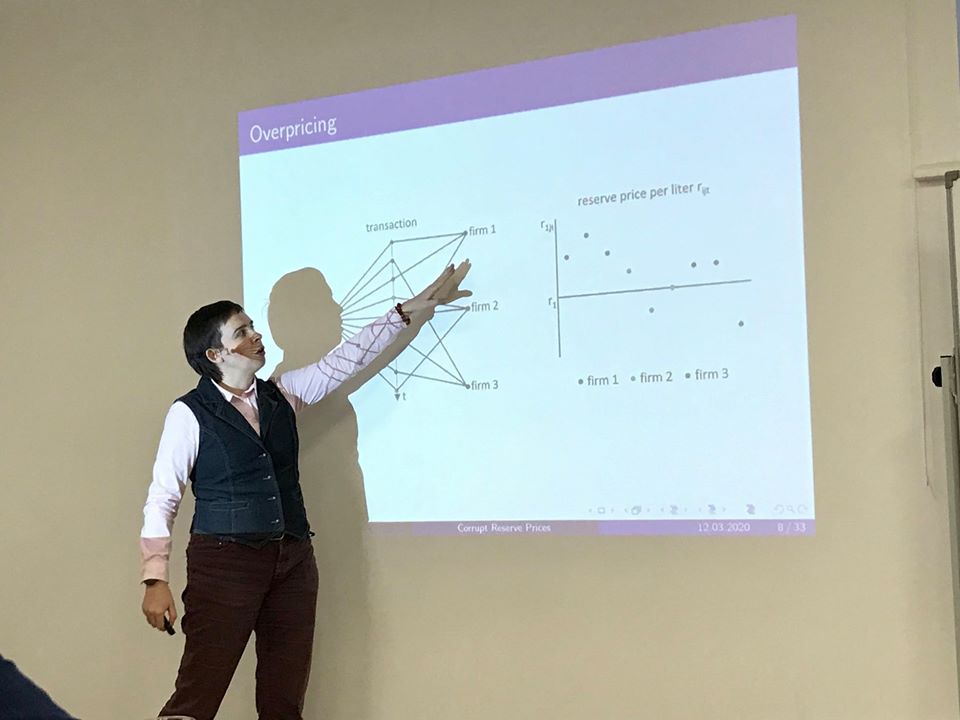How to detect corruption in public procurement auctions with reserve prices?
Elena Podkolzina presented a joint research with Sümeyra Atmaca and Koen Schoors "Corrupt Reserve Prices" on CInSt research seminar on 12th March.

Corruption can cause different problems in the public procurement:
1. effect on competition: auction competition is lower if a corrupt procurer-seller pair is involved
2. winning probability: sellers that constitute a corrupt pair with a procurer are more likely to win auctions of this procurer
3. effect on outcome: auctions won by a corrupt procurer-seller pair exhibit higher contract prices.
Therefore, it is important to capture corrupt favoring in auctions. The authors find that the odds of winning is 18.3% higher for overpricing pairs than pairs that do not manipulate reserve prices and the marginal effect, evaluated at the means of covariates, is 2 percent points. Restrictions are the main instrument to transform high reserve prices in high contract prices. Index based on corrupt pairs distribution is positively correlated with other measures of corruption.
To read more, please, follow the link.
